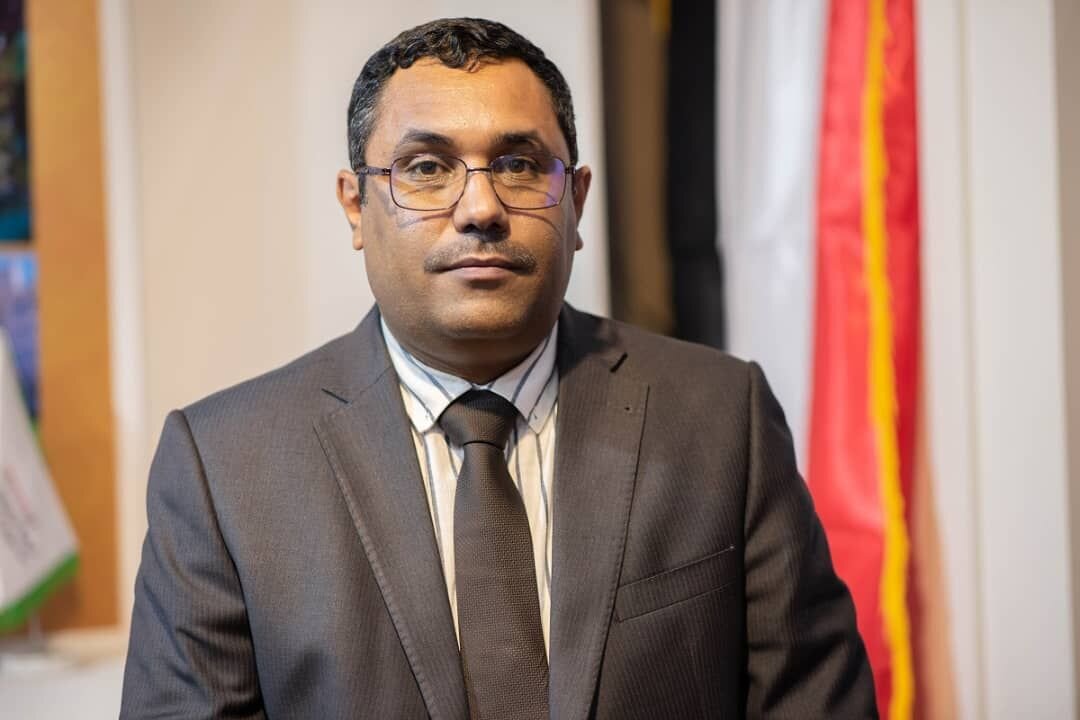Israel uses Gaza-style raids on Yemeni journalists, Yemeni expert says

TEHRAN – Israeli airstrikes on offices of two Yemeni newspapers, 26 September and Yemen, have claimed the lives of 32 journalists and media staff. The attacks, which Israel has acknowledged, are seen as deliberate attempts to silence the media and intimidate the Yemeni people, drawing widespread condemnation from analysts and human rights observers.
In an exclusive interview with the Tehran Times, Abdulrahman Rajeh, a Yemeni journalist and analyst, described the attacks as a grave violation of international law. He stressed that the strikes targeted purely civilian locations, with journalists performing their professional duties, making this a clear example of a war crime.
“The areas hit were entirely non-military,” Rajeh said. “Journalists and media institutions have the right to protection under international law. Targeting them is a blatant attack on freedom of the press and a crime against humanity.”
Political motives behind the strikes
Rajeh explained that the attacks were politically motivated, aimed at undermining the voice of the Ansarallah movement. He said Israel seeks to instill fear among the Yemeni population to intimidate the military and civilian supporters, effectively attempting to halt Yemen’s defensive operations.
“These are not isolated incidents,” he added. “Israel has previously targeted civilian infrastructure in Yemen, including the ports of Hodeidah and Salif, power plants, and fuel stations, resulting in dozens of civilian casualties. The victims have never had any military affiliation.”
“Israel wants to send a message that if we cannot silence your military, we will kill civilians in a horrific manner.”Parallels with Gaza
Rajeh drew parallels between the ongoing situation in Yemen and the Israeli attacks in Gaza. “What we are witnessing in Yemen mirrors the events in Gaza: civilians and non-military areas are being extensively targeted, leading to massive casualties,” he said. “The attack on our journalist colleagues is just one example of this inhumane strategy.”
He warned that global silence over these attacks emboldens Israel to continue such illegal actions. “The pattern seen in Gaza has now been transferred to Yemen, demonstrating Israel’s disregard for international law and ethical norms,” Raaij emphasized.
Intimidation and civilian fear
According to Rajeh, the ultimate goal of these strikes is intimidation. “Israel wants to send a message: if we cannot silence your military, we will kill civilians in a horrific manner,” he said. Yet, he stressed that such atrocities will not stop Yemen’s military operations. On the contrary, the journalist said, they strengthen public support for the Yemeni army and prompt calls for decisive retaliation.
Solidarity with Gaza
The analyst noted that Yemeni public support for Gaza continues unabated. “Gaza is truly isolated and without external support, which is why the Yemeni people feel deep solidarity with its population. The recent mass protests in Yemen, numbering in the millions, are unprecedented and demonstrate unwavering support for both Gaza and the Yemeni resistance.”
“Silence over Israeli strikes on journalists in Gaza and Yemen encourages further inhumane actions.”Impact on press freedom
Rajeh warned of serious implications for press freedom across the region. “Targeting journalists and independent media outlets threatens freedom of expression. Media organizations must not remain silent—they have a duty to report on these atrocities,” he pointed out.
He criticized international organizations and governments for their muted response. “Had such an attack occurred elsewhere, immediate condemnation would follow. But silence over Israeli strikes on journalists in Gaza and Yemen encourages further inhumane actions,” Rajeh explained.
Calls for global action
Rajeh called for international condemnation and accountability measures against Israel. “The global community must hold Israel responsible for this mass killing, which clearly violates human rights. Even if war cannot be halted, the world must make it clear that such practices are unacceptable in the 21st century.”
He also highlighted that the strikes targeted important civilian infrastructure, including Yemen’s Central Bank in Jawf, the governorate and municipality buildings in Jawf, and the National Museum in Sanaa. “These attacks reflect a deliberate strategy to harm civilian and cultural institutions,” Rajeh lamented.
In conclusion, he urged media outlets worldwide to unite and amplify their voices in defense of journalists and press freedom. “This is the minimum action we can take to oppose such cruelty and to ensure that the victims’ voices are heard.”
Leave a Comment